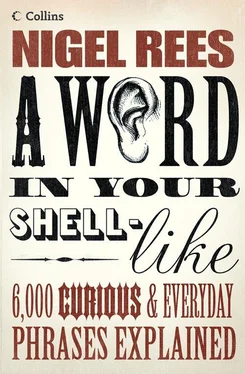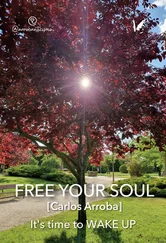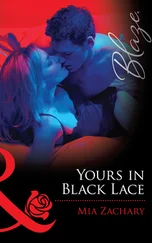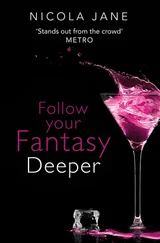as you may know…or as you may not knowSee GOD, WHAT A BEAUTY.
at a strokeAlthough this expression for ‘with a single blow, all at once’ can be traced back to Chaucer, the allusion latterly has been to the supposed words of Edward Heath, in the run-up to the British General Election of 1970. ‘This would, at a stroke, reduce the rise in prices, increase productivity and reduce unemployment’ are words contained in a press release (No. G.E. 228), from Conservative Central Office, dated 16 June 1970, that was concerned with tax cuts and a freeze on prices by nationalized industries. The perceived promise of ‘at a stroke’, though never actually spoken by Heath, came to haunt him when he became Prime Minister two days later.
at daggers drawnMeaning, ‘hostile to each other’. Formerly, ‘at daggers’ drawing’ – when quarrels were settled by fights with daggers. Known by 1668 but common only from the 19th century. ‘Three ladies…talked of for his second wife, all at daggers drawn with each other’ – Maria Edgeworth, Castle Rackrent (1801). ‘It just might be different this time, however, because of a dimension that, amid all the nuclear brouhaha, has received much less attention than it merits. The two Korean governments may be at daggers drawn, but this has not stopped their companies from doing business’ – The Independent (28 June 1994); ‘The trick will be shown on The Andrew Newton Hypnotic Experience which starts on BSkyB next Friday and will have fellow illusionist Paul McKenna glued to his seat – the pair have been at daggers drawn for years’ – Today (8 October 1994).
(the) Athens of the NorthNickname for Edinburgh, presumably earned by the city because of its reputation as a seat of learning. It has many long-established educational institutions and a university founded in 1583. In addition, when the ‘New Town’ was constructed in the early 1800s, the city took on a fine classical aspect. As such, it might remind spectators of the Greek capital with its ancient reputation for scholastic and artistic achievement. Calling the Scottish capital either ‘Athens of the North’ or ‘Modern Athens’ seems always to have occasioned some slight unease. James Hannay, writing ‘On Edinburgh’ ( circa 1860), said: ‘Pompous the boast, and yet a truth it speaks: / A Modern Athens – fit for modern Greeks.’ Most such phrases date from the 19th century, though this kind of comparison has now become the prerogative of travel writers and journalists. Paris has been called the ‘Athens of Europe’, Belfast the ‘Athens of Ireland’, Boston, Mass., the ‘Athens of the New World’, and Cordoba, Spain, the ‘Athens of the West’. In one of James A. Fitzpatrick’s ‘Traveltalks’ – a supporting feature of cinema programmes from 1925 onwards – the commentator said: ‘And as the midnight sun lingers on the skyline of the city, we most reluctantly say farewell to Stockholm, Venice of the North…’ From Tom Stoppard’s play Jumpers (1972): ‘McFee’s dead…he took offence at my description of Edinburgh as the Reykjavik of the South.’ ‘All those colorful canals, criss-crossing the city, that had made travel agents abroad burble about Bangkok as the Venice of the East’ – National Geographic Magazine (July 1967); ‘Vallam is a religious spot, once known as the Mount Athos of the North’ – Duncan Fallowell, One Hot Summer in St Petersburg (1994).
at one fell swoopIn a single movement or action, all at once. A Shakespearean coinage. In Macbeth (IV.iii.219), Macduff is reacting to being told of the deaths of his wife and all his children: ‘Did you say all? – O Hell-kite! – All? / What, all my pretty chickens, and their dam, / At one fell swoop?’ So the image is that of a kite swooping on its prey. ‘Fell’ here means ‘fierce, ruthless’.
at one with the universeMeaning, ‘in harmony with the rest of mankind’ or, at least, ‘in touch with what is going on in some larger sphere’. When the Quaker George Fox (1624–91) consented to take a puff from a tobacco pipe, he said no one could accuse him of ‘not being at one with the universe’. Sometimes the phrase is ‘atoneness with the universe’. Compare, from Gore Vidal, Myra Breckinridge , Chap. 13 (1968): ‘[With a hangover from gin and marijuana] I lay in that empty bathtub with the two rings, [and] looking up at the single electric light bulb, I did have the sense that I was at one with all creation.’
attention all shipping!For many years on BBC radio, the shipping (weather) forecasts were preceded by this call when rough seas were imminent. Then would follow: ‘The following Gale Warning was issued by the Meterological Office at 0600 hours GMT today…’ (or whatever).
at the crack of dawn (or day)Meaning, ‘at the break of day, dawn’, but often used jovially in the sense of unpleasantly early, as when complaining of having to get up early to carry out some task. Apparently of US origin (by 1887), ‘crack of day’ seems to have come before ‘crack of dawn’.
at the drop of a hatOriginally an American expression meaning ‘at a given signal’ – when the dropping of a hat was the signal to start a fight or race. The phrase has come to mean something more like ‘without needing encouragement, without delay.’ For example, ‘He’ll sit down and write a witty song for you at the drop of a hat.’ Hence, the title of a revue At the Drop of a Hat (1957) featuring Michael Flanders and Donald Swann – who followed it up with At the Drop of Another Hat (1963).
at the end of the dayThis must have been a good phrase once – alluding perhaps to the end of the day’s fighting or hunting. It appeared, for example, in Donald O’Keeffe’s 1951 song, ‘At the End of the Day, I Kneel and Pray’. But it was used in epidemic quantities during the 1970s and 1980s, and was particularly beloved of British trade unionists and politicians, indeed anyone wishing to tread verbal water. It was recognized as a hackneyed phrase by 1974, at least. Anthony Howard, a journalist, interviewing some BBC bigwig in Radio Times (March 1982), asked, ‘At the end of the day one individual surely has to take responsibility, even if it has to be after the transmission has gone out?’ Patrick Bishop, writing in The Observer (4 September 1983), said: ‘Many of the participants feel at the end of the day, the effects of the affair [the abortion debate in the Irish Republic] will stretch beyond the mere question of amendment.’ And Queen Elizabeth II, opening the Barbican Centre in March 1982, also used it. But it is the Queen’s English, so perhaps she is entitled to do what she likes with it.
at the grassroots (or from the grassroots)A political cliché, used when supposedly reflecting the opinions of the ‘rank and file’ and the ‘ordinary voter’ rather than the leadership of the political parties ‘at national level’. The full phrase is ‘from the grassroots up’ and has been used to describe anything of a fundamental nature since circa 1900 and specifically in politics from circa 1912 – originally in the US. A cliché in the UK since the late 1960s. A BBC Radio programme From the Grassroots started in 1970. Katherine Moore writing to Joyce Grenfell in An Invisible Friendship (letter of 13 October 1973): ‘Talking of writing – why have roots now always got to be grass roots? And what a lot of them seem to be about.’ ‘In spite of official discouragement and some genuine disquiet at the grassroots in both parties, 21 such joint administrations have been operating in counties, districts and boroughs over the past year’ – The Guardian (10 May 1995); ‘The mood of the grassroots party, and much of Westminster too, is for an end of big government, substantial cuts in taxation, cuts in public spending, toughness on crime, immigration and social-security spending, and as little Europe as possible’ – The Guardian (10 May 1995).
Читать дальше












